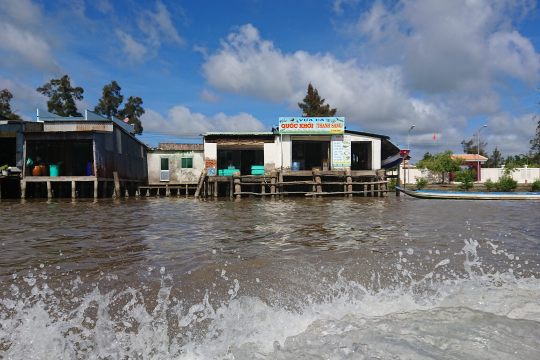This study investigates Marginal Abatement Costs (MACs) for BOD, COD, and TSS in the Mekong River Delta's seafood processing industry. By analyzing production data and pollutant levels, we estimated the MACs and their correlation with firm traits. Our findings highlight the potential for a tradable permit system over uniform standards or environmental fees for more efficient pollutant reduction strategies.
Abstract
This study examines the marginal abatement costs (MACs) of three water pollutants (BOD, COD, and TSS) in the seafood processing industry in the Mekong River Delta of Vietnam. Using data on production activities and pollutant concentration, we estimate the MACs and analyze their relationship with firm characteristics. The results reveal significant heterogeneity in MACs, with younger firms, less labor-intensive firms, LLCs and joint-stock companies, firms located in seashore or riverside areas, and those with ISO or other certifications exhibiting lower MACs. These findings suggest that a uniform standard or environmental fee may not efficiently address pollutant reduction. Instead, a tradable permit system could be a more effective approach.
Keywords: seafood, water pollutants, marginal abatement cost, directional distance function


